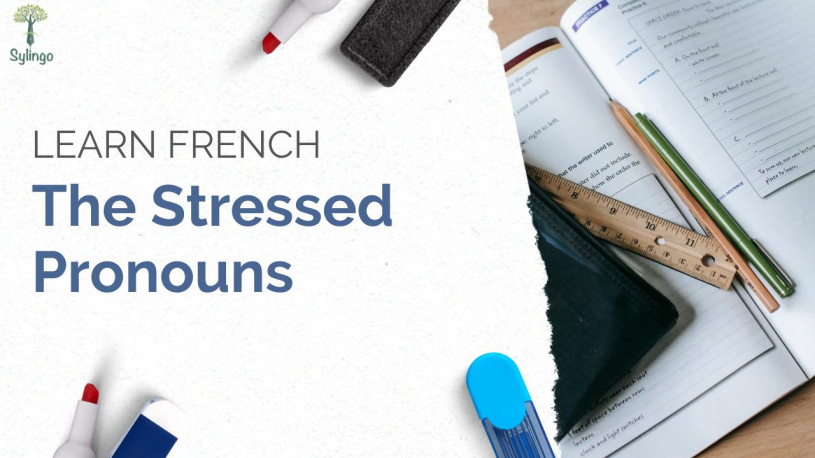Stressed pronouns “Les pronoms toniques”, also known as emphatic or disjunctive pronouns, play a unique role in French grammar. Unlike subject or object pronouns, which are used in regular sentence construction, stressed pronouns emphasize or clarify the subject or object of a sentence. In this lesson, we will explore the usage and forms of stressed pronouns in French.
Forms of Stressed Pronouns:
In French, stressed pronouns have different forms depending on their grammatical role. Here are the forms:
Subject Pronouns:
| je | I |
| tu | you, singular informal |
| il/elle/on | he/she/one |
| nous | we |
| vous | you, plural/formal |
| ils/elles | they, masculine/feminine |
Object Pronouns:
| moi | me |
| toi | you |
| lui | him, to him |
| elle | her, to her |
| nous | us |
| vous | you |
| eux | them, masculine |
| elles | them, feminine |
Usage of Stressed Pronouns:
-
Emphasis:
Stressed pronouns are used to emphasize or contrast a specific subject or object in a sentence. For example:
- Moi, j'aime le chocolat. (As for me, I like chocolate.)
- Toi, tu es gentil. (You, you are kind.)
2. Clarification:
Stressed pronouns clarify who or what is the subject or object. They often occur after prepositions or in contrastive constructions. For. example:
- Elle parle à lui. (She's talking to him.)
- Eux, ils préfèrent le thé. (They, they prefer tea.)
Placement of Stressed Pronouns:
1- Before the Verb:
Stressed pronouns typically precede the verb in affirmative sentences and follow the verb in negative sentences and commands. For example:
- Je parle à toi. (I'm talking to you.)
- Je ne parle pas à toi. (I'm not talking to you.)
2- After Prepositions:
Stressed pronouns follow prepositions. For example:
- Pour moi, c'est facile. (For me, it's easy.)
- Sans lui, je ne peux pas partir. (Without him, I can't leave.)
Exercises:
1- Translate the following sentences into French using stressed pronouns:
a) She is speaking to me.
b) They prefer coffee.
c) You are coming with us.
d) He is not talking to her.
2- Correct the following sentences by replacing the underlined pronoun with the appropriate stressed pronoun:
a) Marie a offert un cadeau pour toi.
b) Il a parlé avec moi hier.
c) Nous avons rencontré elle à la bibliothèque.
d) Est-ce que tu vas venir avec je?
Corrections
1- Translate the sentences:
a) Elle me parle.
b) Ils préfèrent le café.
c) Tu viens avec nous.
d) Il ne lui parle pas.
2- Correct the sentences:
a) Marie a offert un cadeau pour moi.
b) Il a parlé avec moi hier.
c) Nous avons rencontré elle à la bibliothèque.
d) Est-ce que tu vas venir avec moi?
Stressed pronouns provide emphasis and clarification in French sentences. By understanding their forms, usage, and placement, learners can effectively communicate and express emphasis or contrast in their speech and writing. Practice using stressed pronouns in various contexts to improve your French language skills.






Nice